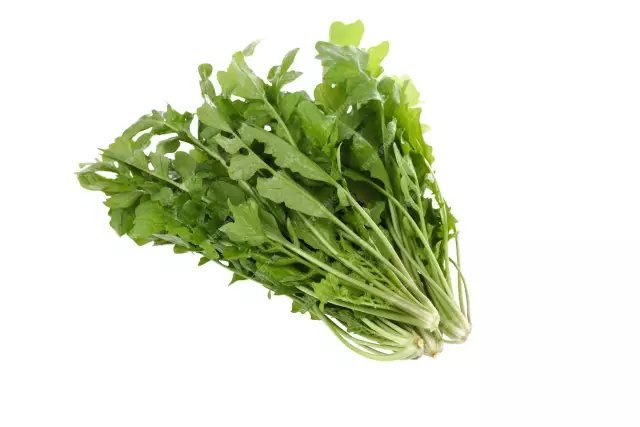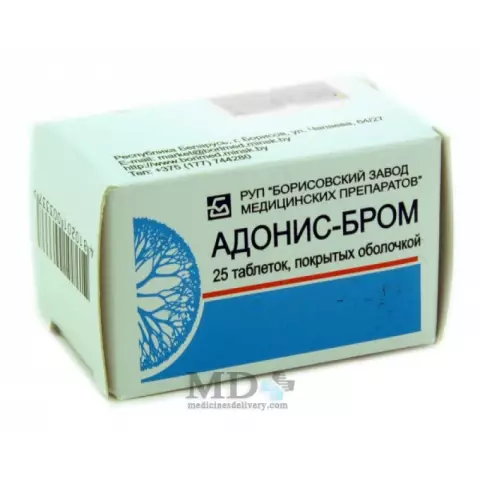- Author Rachel Wainwright wainwright@abchealthonline.com.
- Public 2023-12-15 07:39.
- Last modified 2025-11-02 20:14.
Shepherd's bag
Instructions for use:
- 1. Description
- 2. Application
- 3. Contraindications
Description

There are a lot of alternative names for the plant, among which are the common handbag and handbag, field buckwheat, grytsyks, bast grass and heart grass, shepherd's handbag, sparrow's eye, grandmother, swan, hearts, cores, spoons, purse and many others.
There are many types of shepherd's purse, in the official botany there are about 25 pieces.
The common shepherd's purse is an unpretentious, annual and widespread plant that does not grow more than 30 cm. The purse belongs to the cruciferous family. A feature of the plant is its fruits, which are triangular in shape, and small white-yellow flowers.
The handbag is found everywhere both in Russia and in Ukraine. It can grow near roads, in parks and courtyards, on the outskirts of fields.
For medicinal purposes, they use exclusively the ground part of the plant, it can be stems, flowers and green fruits. Raw materials should be harvested in the spring, during the flowering period. The grass is dried in the shade, usually in attics, spreading it in a very thin layer. The shepherd's bag is stored in dry rooms in boxes, paper or canvas bags. The shelf life of the harvested raw materials should not exceed 3 years.
Application
The most famous properties of a shepherd's purse in medicine are hemostatic, so the plant is a good remedy for all kinds of injuries, as well as for uterine and pulmonary bleeding. At the same time, due to the high content of active ingredients, the herb is characterized by many medicinal properties.
Shepherd's purse is included in a huge number of official collections of herbs, which can have blood-purifying and hemostatic effects on the body. Many collections of herbs containing a handbag are used to treat pyelonephritis, cystitis, urolithiasis. The use of a shepherd's purse is also possible to neutralize and remove toxins that are formed as a result of the use of various oncological drugs. These herbal preparations are sold in pharmacies.
The properties of the shepherd's purse are not limited only to those described above, because the plant also has a lot of other medicinal and useful characteristics. Among them are vasodilator, wound healing, anti-inflammatory, astringent, anti-febrile and diuretic effects on the body.
The handbag has recently found widespread use as a pressure regulating and equalizing agent, which is used in heart diseases, which is especially typical for the elderly. To maximize the result, it is recommended to use shepherd's purse tea.
The description of the shepherd's purse shows the presence of a number of useful properties in this plant, which can be revealed in various decoctions, teas and infusions.
To make tea from a purse, you need to pour a glass of boiling water over 2 tsp. chopped herbs, let it brew for 10 minutes, and then strain. You need to drink tea in a warm form, 2 glasses a day.
The use of a shepherd's purse in the form of an infusion is possible with pulmonary, renal, stomach and uterine bleeding, as well as with heavy menstruation. The infusion has good wound healing and anti-inflammatory effects, therefore it is recommended for use in all kinds of injuries.

To prepare an infusion from a shepherd's purse, you need to pour a tablespoon of raw material with a glass of boiling water, let the mixture brew for an hour, strain. You need to take the infusion three times a day, a tablespoon before meals.
Herbal infusions are used for gastritis, duodenal ulcer and stomach ulcer, intestinal atony, vomiting, diarrhea, cholelithiasis, dysentery, cholecystitis, rheumatism and gout. The decoction of the handbag and the crushed herb can be used externally as lotions to be applied to ulcers or wounds, as well as to bruised sites.
The use of a shepherd's purse for medicinal purposes is also possible in the form of alcohol tincture or natural juice. Very often, the handbag is used in collections designed to regulate the menstrual cycle. Shepherd's purse is used for hypotension, atherosclerosis, menopause and dizziness. In this case, it should be consumed in the form of tea.
Contraindications
The use of the plant for hemorrhoids, pregnancy or increased blood clotting is strictly prohibited.
Thrombophlebitis is also a good reason for contraindication to a shepherd's purse.
Information about the drug is generalized, provided for informational purposes only and does not replace the official instructions. Self-medication is hazardous to health!






